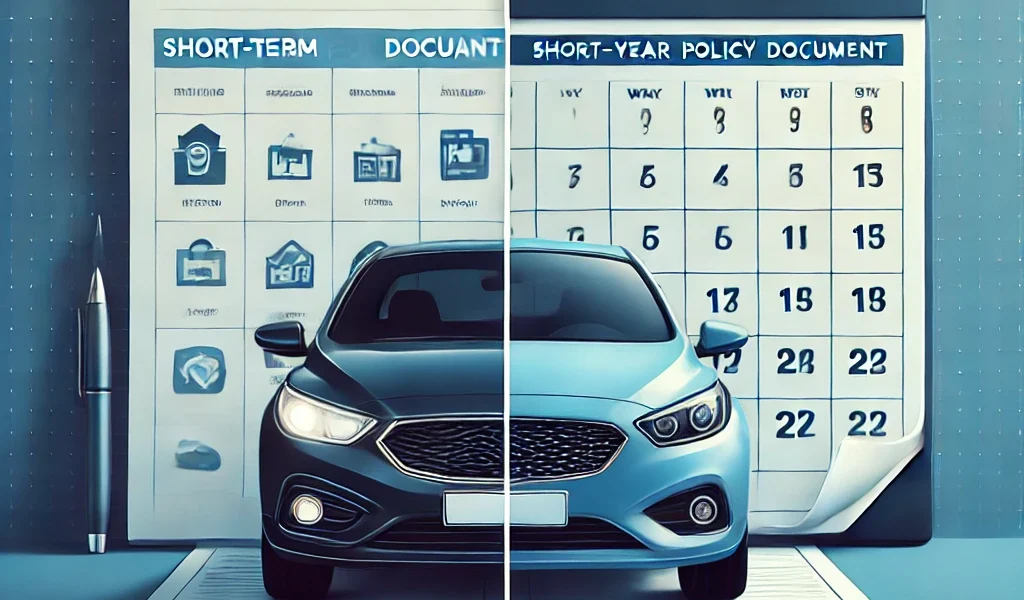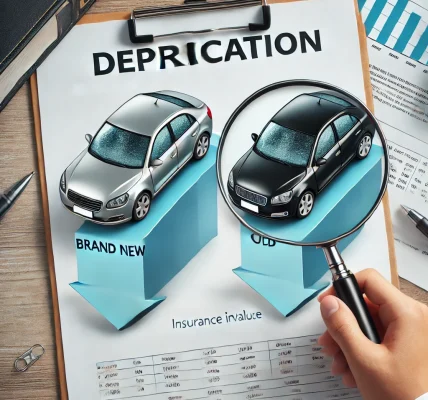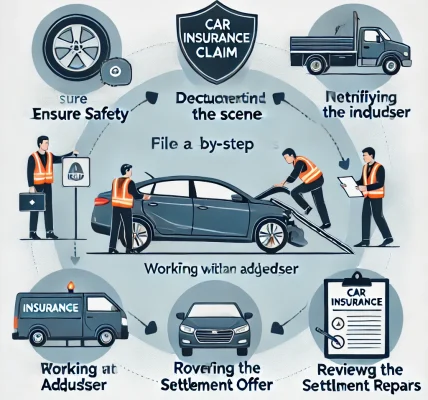Car insurance is essential for protecting your vehicle, finances, and legal standing in case of accidents or unexpected incidents. However, not all insurance policies are created equal. Some drivers require coverage for a short period, while others need a long-term policy.
Understanding the difference between temporary and long-term car insurance can help you choose the best option for your needs. In this article, we will explore the pros and cons of both types, when each is appropriate, and how to make the right choice.
What is Temporary Car Insurance?
Temporary car insurance, also known as short-term car insurance, provides coverage for a limited period—usually from a single day to a few months. It is a flexible option for drivers who do not require continuous coverage.
Who Needs Temporary Car Insurance?
Temporary car insurance is ideal for:
- Borrowing a Car: If you need to drive a friend’s or family member’s car for a short period.
- Short-Term Rentals: If you rent a car and prefer additional coverage beyond what the rental company offers.
- Occasional Drivers: If you only drive occasionally and do not own a car.
- New Car Owners Waiting for a Long-Term Policy: If you’ve just bought a car and need immediate coverage before finalizing a long-term policy.
- Students Home for the Holidays: If you are a student who only drives when home for vacation.
- Test Driving or Selling a Car: If you are test-driving or selling a car and need short-term protection.
Pros of Temporary Car Insurance
✅ Flexibility: You can choose coverage for as little or as long as you need. ✅ Quick Setup: Policies can be purchased and activated almost immediately. ✅ No Long-Term Commitment: Ideal for temporary situations where a full policy is unnecessary. ✅ Avoids Impact on Primary Policy: If you already have a long-term policy, a temporary policy can prevent claims from affecting your long-term premium.
Cons of Temporary Car Insurance
❌ Higher Daily Cost: Temporary insurance is usually more expensive per day than long-term policies. ❌ Limited Availability: Some insurers do not offer short-term policies in all areas. ❌ Fewer Coverage Options: It may not offer as many benefits as a full-term policy, such as accident forgiveness or loyalty discounts.
What is Long-Term Car Insurance?
Long-term car insurance refers to standard auto policies that provide continuous coverage for six months to a year or more. Most car owners and frequent drivers opt for long-term coverage as it provides comprehensive protection and legal compliance.
Who Needs Long-Term Car Insurance?
Long-term car insurance is suitable for:
- Car Owners: If you own a car, continuous coverage is legally required in most areas.
- Daily Commuters: Those who drive to work or school regularly.
- Families with Multiple Vehicles: If your household has multiple cars and drivers, a bundled long-term policy can be cost-effective.
- Drivers Who Want Full Coverage: If you want extended benefits like collision, comprehensive, and uninsured motorist protection.
- Leased or Financed Vehicles: If you finance or lease a car, lenders often require long-term, full-coverage insurance.
Pros of Long-Term Car Insurance
✅ Cost-Effective: The cost per day is usually lower than temporary policies. ✅ Comprehensive Coverage: Includes a wide range of protections such as liability, collision, and comprehensive coverage. ✅ Consistency: Provides continuous coverage, preventing lapses that could lead to higher premiums in the future. ✅ Discount Opportunities: Insurers offer discounts for good driving, bundling policies, and staying insured with the same provider. ✅ Legal Compliance: Ensures you meet state laws that require minimum liability coverage.
Cons of Long-Term Car Insurance
❌ Less Flexibility: Requires a longer commitment, which may not be ideal for occasional drivers. ❌ Higher Upfront Cost: Monthly or annual premiums may be a significant expense. ❌ Potential for Rate Increases: Premiums may rise upon policy renewal based on claims or market changes.
Temporary vs. Long-Term Car Insurance: Key Differences
| Feature | Temporary Car Insurance | Long-Term Car Insurance |
|---|---|---|
| Duration | A few days to a few months | Six months to a year or more |
| Cost | Higher daily rate | Lower daily rate but higher upfront cost |
| Coverage | Basic liability, sometimes collision | Liability, collision, comprehensive, and more |
| Flexibility | Can start and stop anytime | Requires continuous coverage and renewal |
| Legal Compliance | May not be available in all states | Meets all legal requirements for car owners |
| Ideal For | Occasional drivers, renters, temporary situations | Regular drivers, car owners, long-term vehicle use |
How to Choose the Right Car Insurance for You
Choosing between temporary and long-term car insurance depends on your needs, driving habits, and financial situation. Here are some factors to consider:
1. How Often Do You Drive?
- If you drive regularly, a long-term policy is the best option.
- If you drive occasionally or need coverage for a short period, a temporary policy makes more sense.
2. Do You Own a Car?
- Car owners should opt for long-term insurance to comply with legal requirements.
- If you borrow or rent cars occasionally, a temporary policy may suffice.
3. What is Your Budget?
- Temporary insurance has a higher daily rate but may be cheaper overall if used sparingly.
- Long-term insurance offers better value for frequent drivers due to lower per-day costs and discounts.
4. What Type of Coverage Do You Need?
- Temporary insurance typically offers minimal coverage.
- Long-term insurance provides comprehensive protection, including liability, collision, and uninsured motorist coverage.
5. Are You Leasing or Financing a Car?
- Most lenders require long-term, full-coverage insurance.
- Temporary policies may not meet financing requirements.
Final Thoughts
Both temporary and long-term car insurance have their advantages and disadvantages. If you need short-term flexibility, temporary insurance is a great option. However, if you own a car and drive frequently, long-term insurance is the best choice for cost-effectiveness and legal compliance.
Ultimately, your decision should be based on your driving habits, budget, and coverage needs. Always compare quotes from different insurers to find the best policy for your situation. By understanding the differences between temporary and long-term car insurance, you can make an informed decision that ensures both financial protection and peace of mind.



